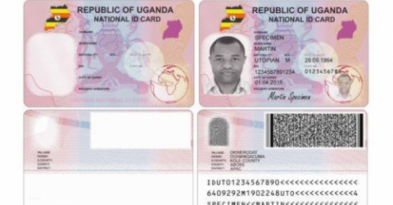Friday May 16, 2025
The recent proposal of the UPDF Amendment Bill 2025 by Uganda’s Parliament has stirred significant debate and concern among legal experts, human rights defenders, and citizens alike.
At the centre of this controversy is the bill’s apparent aim to amend the Supreme Court ruling that prohibits trying civilians in court martial, or military courts.
This development raises critical questions about the rule of law, separation of powers, and the protection of fundamental human rights in Uganda.
The UPDF Amendment Bill 2025 seeks to give military courts jurisdiction over civilians accused of certain offenses.
This comes after the Supreme Court ruled clearly that civilians should not be tried in court martial, reaffirming their constitutional right to be tried in civilian courts.
The Court’s decision was grounded in Uganda’s constitutional framework, which guarantees fair trial rights and due process under civilian judicial systems.
Why is This Controversial?
As Community Transformation Foundation Network (COTFONE), a CSO/Civic Organisation/ Citizens’ Organisation, trying civilians in military courts is widely recognised as a violation of human rights and international legal standards.
Military courts, by their nature, lack the independence and impartiality essential for fair trials. They are designed primarily to try military personnel under military law, not civilians under civilian law.
Reversing the Supreme Court’s ruling
The Rule of Law: The judiciary’s independence is fundamental to maintaining checks and balances in government. Parliament amending a ruling that protects constitutional rights may set a dangerous precedent.
Human Rights Protections: Military trials often fall short of international fair trial standards, such as the right to legal representation, transparent procedures, and impartial judges.
Public Trust in Justice: When civilians are tried in military courts, it creates fear and mistrust among citizens, who may perceive the move as a way to silence dissent or political opposition.
Is This a Question of National Security or Political Control?
Supporters of the bill may argue it is necessary for national security or to speed up justice in certain cases.
However, critics question whether this is truly about justice or about expanding military influence and control over civilian affairs.
The timing and political context of this bill suggest there may be motives beyond legal reform.
What Should Parliament Do?
Respect the Supreme Court’s Ruling: Upholding judicial decisions is essential for the stability of Uganda’s democracy and the rule of law.
Protect Human Rights: Any legislation must comply with Uganda’s constitution and international human rights obligations.
Engage Public Dialogue: There should be open consultations with civil society, legal experts, and the public before making changes that impact justice and rights.;










